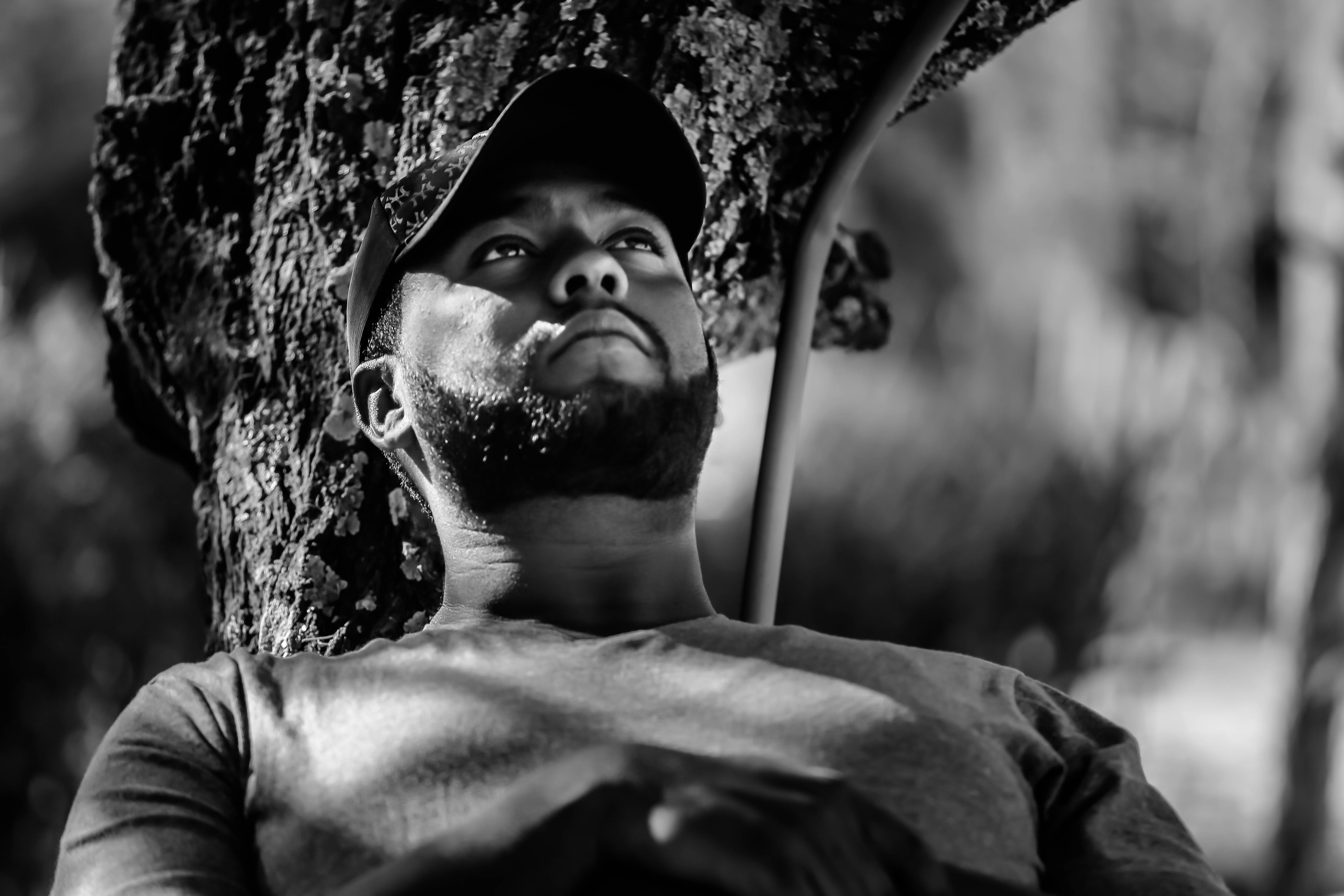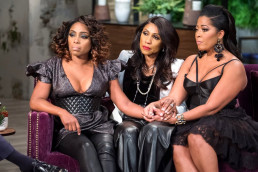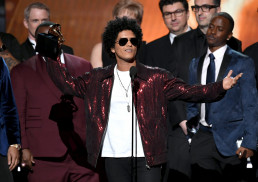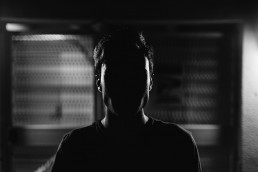Reality TV Finally Got Real
Heavily scripted shows are more sensationalized life situations than they are representations of what most folks would consider normal. We know the situations are orchestrated but the reactions are real. Thus, we get manufactured reality. The foundation of each episode rests on actual events happening to real people, but sometimes the outlandish behavior causes us to forget they are not fictional characters. Not only that, but they often seem forget they are real people as well. I sat dumbfounded as Simone revealed her truth in front of the cast and everyone watching, I couldn’t help but think about the unspoken narrative.
The second installment of "Married to Medicine" reunion special aired. Did you see it? The episode was shocking, to say the least. Normally, these kind of shows are my guilty pleasure and I watch them as a way to escape or remind myself that other folks have worse shit going on than me. However, this episode was a little more real than "reality T.V." normally is. I have no words that can replicate the intensity of Simone's emotions.
Did you see what I saw
The authenticity in her eyes and the anguish in her voice leveled me. Her refusal to accept less than she deserved as a wife broke any character-driven fantasy to the contrary of her current reality. All the cast members were in tears as she explained why an unbreakable relationship was, in fact, susceptible to same maladies that millions of others experience. We witnessed the demise of a marriage in its final stages. I believed this couple had most of the necessary elements to go the distance until I watched the episode where Simone repeatedly accused Cecil of being emotionally closed off.
Before we go any further, check out part two of the reunion.
https://vimeo.com/260670365
I sat watching as Simone revealed her truth in front of the cast and everyone watching, I couldn't help but think about the unspoken narrative.
Broken boys are marrying broken girls and trying everything imaginable to hold families together.
They say it's because...
In hindsight, isn’t that always the story. What we see on the outside of relationships is different from existing in it. I wonder how many of people at home recognized what she shared went well beyond what she articulated. I saw a real-world example of damaged personal development and how it is dividing modern marriages.
Husbands and wives have argued since the beginning of time, but there is something very different going on in contemporary marriages. People get married and bring all the broken places left unhealed from childhood into the lives of unsuspecting participants.
I think that we all know about absentee parents. I have heard it so often I am now tempted to roll my eyes when the expression is unleashed into a conversation. Yet, there is still validity to the correlation between a positive example and the lack thereof.
What we do know is...
Jobs, money, success, or celebrity are not enough to heal the holes created by absentee parents. Stories of fathers that didn't give their daughters the validation they need or their sons the requisite instruction of how to be a husband/ father are familiar narratives. Mothers who never showed their sons how women like to be treated, or their daughters how to receive/ give love in return have populated American society with children operating adult bodies. We are overrun with adultescents trying to fix traumas experienced during childhood.
How do we expect men and women to exist as complete individuals capable of sustaining life-long relationships? How do you complete a task without an adequate idea of what completion or success at that task looks like? With help, of course!
We need our young adults to heal and to solve the riddle prior to settling into long-term relationships and creating families. This means you should figure out your shit before you destroy someone else's life. It is not okay to knowingly allow someone else to become emotionally dependent on you when you are not able to depend on yourself. You knew you had daddy/ mommy issues years ago, right?
You can't heal what you won't talk about
It is absolutely necessary to create an environment where authentic communication in a relationship is normalized.
https://twitter.com/IyanlaVanzant/status/975401444965838850
This will mean that traditional notions of stoicism need to be revised and in some ways eliminated. Vulnerability does not equal emasculation.
So often successful men and women believe their success is a substitute for wholeness. They believe they can buy their way out of the process, but it actually creates an opportunity for their internal damage to be revealed in a much larger way. When we have financial peace of mind, we have more time to see things that would ordinarily escape our attention. It allows us to focus on things that make us happy or fulfilled beyond economics.
Thankfully, we are beginning to turn the corner. As evidenced by some younger adults, more men/ women are available to their children in ways that matter. More mothers/ fathers are finding the balance between parenthood and take increasingly active roles in raising children in ways that they never have before. Considering all this, we still find ourselves in a situation where there is plenty to be done, but the situation is hopeful
Always, without fail, pay attention to what you allow your ears to hear and your eyes to see.
Regg
Do You Know Where You Stand, Because I Do?
Welcome to the "Do you know where you stand" series. A snappy little way to grab a nugget of info while we get to know each other better. I created this series as a reaction to the lack of direct communication almost everywhere. It's chance to promote honesty, infused with a little humor and maybe even a little sarcasm. We could all use a good laugh but that doesn't mean we can't learn a little something along the way.
This is the one and only time I will do an introduction to the series, and I wanted to leave a couple of instructions before we dive it.
The rules
- I am not necessarily talking about anyone specifically. If you recognize yourself in something I say, whose problem is that? We can all do a little better.
- Feel free to call bulls*hit on anything I have written. We don't have to agree to get along.
- Let's have some fun!
Diving right into Bruno Mars
I want to clear the air about the Bruno Mars foolery. The convo about Bruno and his "musical stylings" has been a hot topic for the last week! I mean, everyone has had something to say. If you are one of those folks who is gainfully employed or simply don't give a shit about it, here is a situation summary in one picture.
https://twitter.com/yomiadegoke/status/974250039269871616
Can we take a collective deep breath? Cultural appropriation is a big deal. I don't want to dismiss the merit of an issue that continues to plague a culture that continues to overcome unnecessary adversities time and again.
However, half the people complaining about appropriation looked it up before they tweeted/ updated their status on Casebook so they could do the bare minimum, spell it right. The other half was so busy defending the talent of their colonizer cohort that they forgot a key ingredient, talent.
https://twitter.com/PHTEVENMORT/status/973691668430925825
Is Bruno really all that talented? He has some good bop's and a couple of smooth vibes, but nothing that couldn't be duplicated with a good budget and an even better producer. I am almost positive he isn't writing most of his music so...
The key to the debate is the acceptance, promotion, and celebration of black culture as long as it is packaged in a non-black body. Nothing about that is new, but we can fix/change this by discontinuing support of things that don't serve us or further economic and social equality.
Example: Black Panther is a key instance of the economic power people have by supporting or not supporting a product.
If folks are gonna argue over change and equality the minimum they could do is educate themselves on the dynamics of the situation. Focus on what matters!
Stay smart
Regg
Experiencing TV Through Colored Lenses
This past weekend I watched Seven Seconds. It’s a mini-series from Netflix starring Regina King, Russell Hornsby, and Clare-Hope Ashitey. It’s a damn good piece of drama and if you have not seen it you should. It is heavy, deep and wrought with all kinds of emotions. Every episode drips with intensity, so you should probably make sure there is plenty of wine around as you watch. Believe me, it will take the edge off.
[embedyt] https://www.youtube.com/watch?v=8gcUmiOlM1M[/embedyt]
The show is newish, so I don't want to include any spoilers that may prevent anyone from watching it. After I finished the last episode, I sat watching the credits scroll by, something I normally never do, but this time was different. I thought, what’s different about this show that captured me so completely?
What shocked me
Honestly, everything shocked me. The situation, the acting, the characters, and most of all it was the feeling. What the hell was this all about? So many residual feelings returned to my mind. I sorted through the torrent of thoughts that surged in at once and realized that I was severely bothered by the feeling that much of what just happened on-screen could have just as easily have happened to me in life. That is if I lived in Jersey City and was still young enough to ride a bike for fun and not exercise. I realized that as a black male, I inherited an unwarranted cultural invisibility.
I’ll just zoom past the part where I talk about how much I love Regina King, and how I have since she was rocking a mushroom on “227”.
I see it this way
I have not accepted or succumbed to this notion as a personal value. Nonetheless, that does not negate or disavow the viability of the concept. It exists; however, in my life I choose to be an exception.
I use cultural invisibility as an expression to articulate a feeling that I suspect most men from my heritage have felt and rarely shared.
Racial invisibility requires the African-American male to be a faceless, inauthentic being devoid of personal character yet retaining assigned characteristics from historical and current cultural tropes. Keep in mind none of this has anything to do with the person themselves, but more to do with the state of cultural affairs, music, TV, films and any other medium that requires creators to draft versions of black men that remain recognizable to society at large.
I don’t intend to be heavy, but I want to explain my perception of racial invisibility specifically and how "Seven Seconds" amplified this concept in a way that had me shook.
This is what we are not
Black men are not just characters from hip-hop videos, sports endorsement commercials, or personifications of characters from “realistic” crime dramas. It’s really that simple, but I want to be very clear. My point is to bring attention to the way I, and those like me, are often denied recognition as people. How we are more often singled-out as a representative of an entire race, or as a caricature PEOPLE may not remotely identify with personally.

For example, I love hip-hop music. I mean, who doesn't right? There is this one guy in the office who I believe has a younger son. I mention his son's age because younger generations have less rigid notions of what people should be and what they should like in general. I can always tell when his son has come to visit for the weekend. Without fail, he will stop by my desk in the morning to try out his “new cool” on me. You know, things like the latest hip-hop song, or an expression he is now using without understanding the meaning or the implication.
You would think that after the last three years he would have learned, but alas he is persistent. Even when I know exactly what he is talking about, I feign ignorance just to deny him the privilege of landing an assumption correctly. Silly rabbit, I will never participate in your misguided shenanigans. He is operating under a set of generalized assumptions that all black men understand and take part in hip-hop culture. I do, but this is not anything he has ever asked or validated.
Moving forward
In Seven Seconds, one of the primary characters fell victim to the same trap to which many suffer. He was denied basic rights and respect because of generic perceptions of black men that equate to worthlessness and invisibility. These ideologies are too liberally applied to men of color. I do not believe that black men are the only group of men who operate contrary to generalizations or detrimental perceptions.
I do, however, believe that the pervasiveness of this issue is more malignant and harmful to black men in terms of economics and freedom than just a general sense of well-being.
What does that really mean?
It means that racism is just not new. None of this is new-organized forms of society require that there be at least one marginalized group, right? It also means the African-American community is well aware of the conditions under which they operate. Recently, the theme of “healing” this problem has trended. I am all for it.
What I am not for is the assumption that the healing requires permission. Reality never required permission. The reality is African-American men are as varied and complex in character as men from any other ethnic heritage. The persistent mistake in conversations of healing is the assumption that recognition or agreement is required, neither are.
I don’t know anyone that needs confirmation of the rain falling outside for it to be true or that standing in it will result in being wet.
These ideas are simple
The invisibility of the African American male as an individual is just as simple and apparent. In fact, most things are THIS simple. Complexities over inequities and divisive rhetoric only become convoluted when one group lacks the wherewithal to accept their own bad behavior or seeks to deny the validity of the other group’s experience. This idea was expressed several times in the series, and I have expressed it several times in my own life. It was this that stirred my connection.
Russel Hornsby, who played the father in this series said:
Every word of his character assessment is correct. It is just a damn shame that instances of these characters, especially characters representing black fathers, are so sparse. This specific character had some misinformed ideas about gender roles and parenting, but that is what solidifies the performance as whole and authentic.
Made or Paid to be Bad
The recent surge of films and network television shows featuring a strong female lead thrills audiences. Some of my friend’s attribute this to the increase in female screenwriters, directors, and producers. The rest believes there is an increased availability of scripts for female characters.
A survey from Center for the Study of Women in Television and Film found that women made up 29 percent of main characters in 2016’s top 100 movies, a 7 percent increase over 2015.
I think there is a variety of opportunities contributing to this change. Progression never really happens at the hands of one thing, but comes from different contributing factors that chip away at the normative expectations. It’s more like transitional conditioning that facilitates change.
Survey says
Audiences are beginning to reject the dominance of male protagonists, especially in the wake of sexual harassment revelations, and want to discuss the need for increased female visibility both in front and behind the camera. The conversations are everywhere and we see them often turn from “ look how great of an opportunity this for women” to “damn men suck, what the hell took so long”. I consider myself a forward thinker, and I have to say I agree. What did take so long? Specifically, what held up diversity and gender equality in entertainment.
Truthfully, women have waited a long while to have the same opportunities as men in nearly every industry, so I’m not surprised here. Knowing something is true doesn’t wipe away the yuck you feel when you hear slimy facts given life through verbal expression. It’s historically undeniable. There are other cross-sections of people who inhabit this same conundrum as women. To maintain focus here, I will leave that for another time.
I have thought about this for a while, and the results are in:
Shout out to the ladies
To all the intelligent, driven, successful ladies reading this, I hear your voices. As much as possible, I understand the transition you are going through. It is thrilling to see that your voice and more realistic representations of your life are now available on demand.
For decades, women exploited on T.V. and in films. Actresses have been typecast and portrayed as one dimensional. You are tired of the relegation to the kitchens, classrooms, and nurseries. Recently, your due has become more available, and positions as directors, producers, and writers you have deserved for so long can be inhabited. I salute you, I honor you, and I say it’s about damn time.
Where is this going
Now that your season of success is in full swing, are you planning to exact your revenge on all men? The rampant success of female-powered shows has fueled revenge writing. The frequency of articles that annihilate men, often astutely, demolish the B.S routines that acted out on women have increased in great measure. The neck-and-neck race of fuckboy articles surpassed only by articles that cover racism, or Donald Trump. (I know those are much the same thing)
Some will say what's the problem. If men are behaving badly, why shouldn't we call them out on their injurious behavior? The problem is, you are using the same broad-stroking brush to paint the male character, that you were once the victim of. I am not demonizing female authors/bloggers, but there is a female population of writers carelessly assassinating the character of "good dudes".
For example, I googled fuckboy, and here are the results. Notice anything?
https://twitter.com/iamddb/status/964238461770321920
https://twitter.com/rainonyakui/status/965642489813258240
90 percent of the search results return an article that does exactly what I just described. Television and films, like Veep, Atlanta, Insecure, Magic Mike, How to be Single, or even Empire, feature one guy minimum, that just can't seem to figure out how to behave appropriately in a relationship. Also, I recently read a listicle that provided some anecdotal character analysis of male characters on current T.V. shows.
This is not all men
I mention this here because all the characterizations represent a type of real person and should be represented in entertainment programs that reach for the same type of verisimilitude that audiences crave.
We all want authenticity, things that represent people we have encountered. I am in line with the rest of the audience. The issue is the translation from storytelling to the nearly insurmountable rhetoric that has become the common weekly feature on almost every female-led entertainment media outlet.
In all things, do your best to keep your mind and eyes open. There is only one way for information to get in.
Regg.




